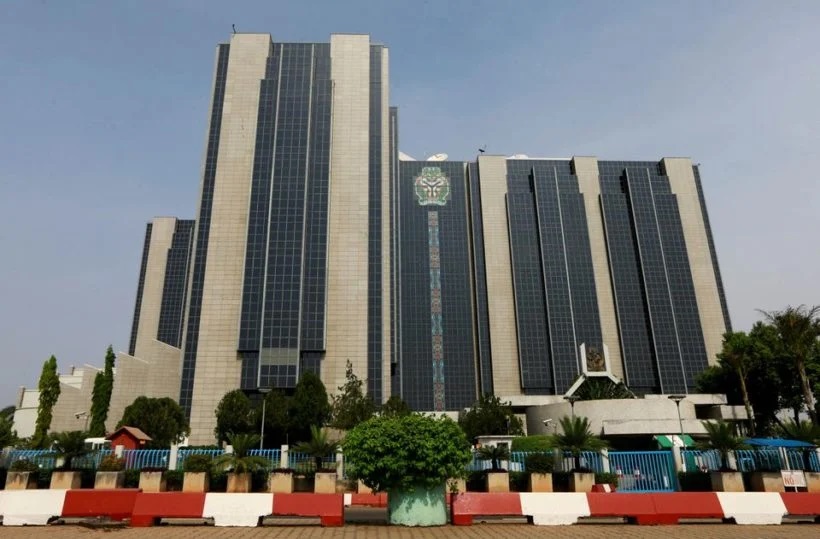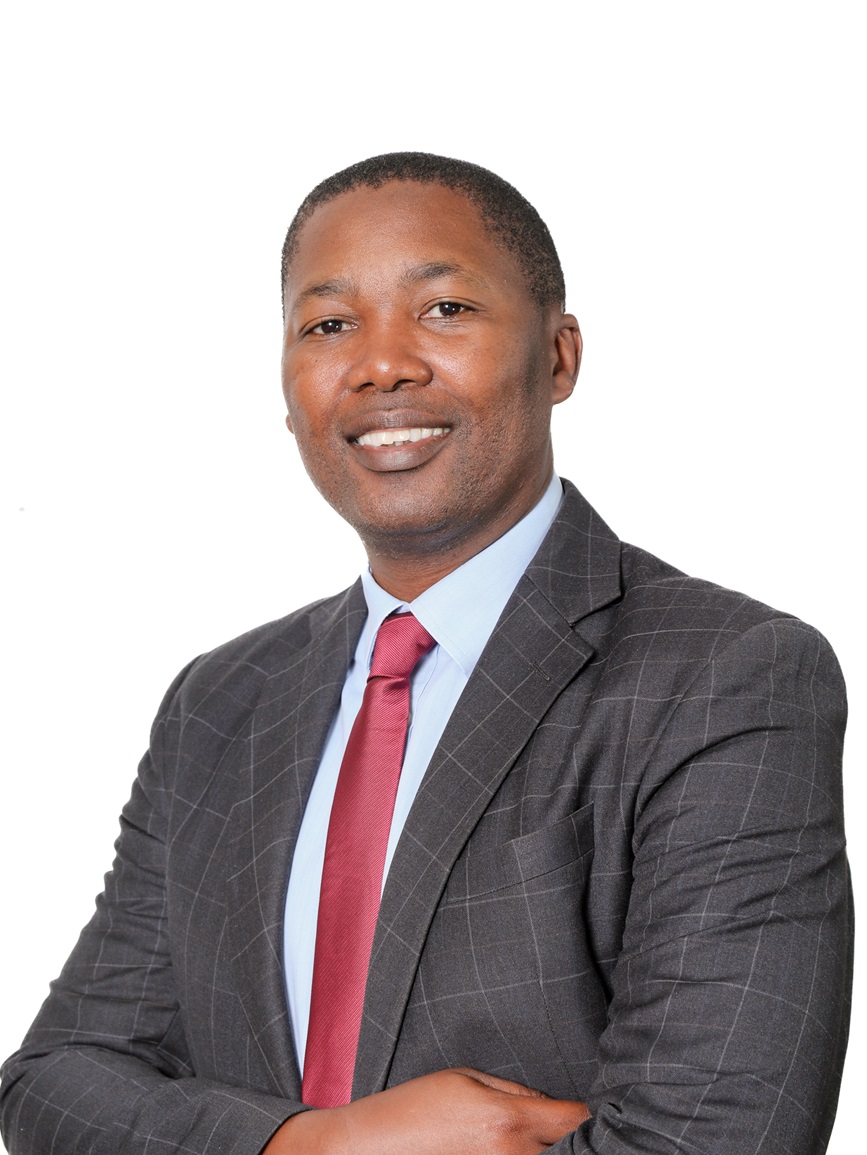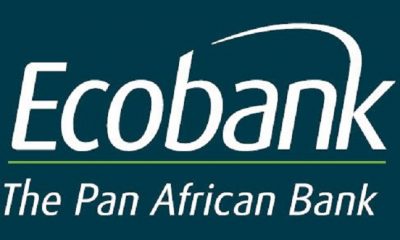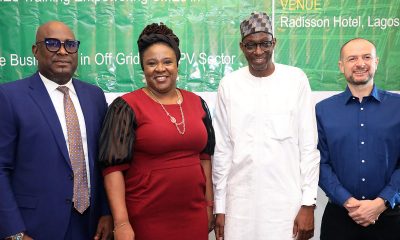Banking
Ecobank Denies Manipulating Figures to Boost Financial Results

By Dipo Olowookere
Togo-based Ecobank Transnational Incorporated (ETI) has refuted a media report claiming it tampered with its accounts in order to make shareholders feel the company was doing well.
In a report by South Africa-based Sunday Times, it was claimed the Financial Reporting Council of Nigeria (FRCN) was already looking into the matter raised by a former CFO of Ecobank’s card division, Altu Sadie, that the financial institution applied incorrect exchange rates, which resulted in it overstating balance sheet items and income statements.
It was reported that the principal manager in the directorate of inspection and monitoring at FRCN, Olumuyiwa Ajibade, confirmed that “The council is working on it (issue). That’s as much as we can divulge at this time.”
Reacting to the issue, Ecobank, in a statement made available to Business Post on Wednesday, December 19, 2018, denied the “unfounded allegations,” urging its “shareholders, creditors, and other stakeholders” to disregard them.
It noted that, “The deterioration of the Naira in 2016 led to the creation of different windows for various segments of the economy leading to foreign currencies being traded in these markets/windows at different rates and thus leading to a multiple exchange rate system in Nigeria.
“The existence of multiple FX markets with different exchange rates as well as the accessibility to such markets necessitates the review of the appropriate exchange rates that entities should use in accounting for and reporting its foreign currency transactions as well as foreign investments into Nigeria under International Financial Reporting Standards (IFRSs). IAS 21 ‘The effects of changes in foreign exchange rates’, requires that a foreign currency transaction should be recorded at initial recognition in the functional currency using the spot exchange rate at the date of transaction (IAS 21, paragraph 21). IAS 21 paragraph 8 defines the spot exchange rate as the exchange rate for immediate delivery. Where a country has multiple exchange rates, an official quoted rate should be used as the spot rate.
“Nigeria currently has multiple exchange rates and judgment is required to determine which exchange rate qualifies as a spot rate that can be used for translation under IAS 21. In determining whether a rate is a spot rate, an entity is required to consider whether the currency is available at an official quoted rate and whether the quoted rate is available for immediate delivery.
“The CBN official rate, Nigeria Inter-bank Foreign Exchange Fixing (NIFEX) rates and the Nigerian Autonomous Foreign Exchange Fixing (NAFEX) rates are all quoted and can be used to convert or translate foreign currency transactions. Thus, the CBN official, NIFEX or NAFEX rates all technically comply with the requirements of IAS 21.
“As a policy within Ecobank Group, we use the official rate in the respective jurisdictions in which we operate to translate the results and balances of our affiliates into the Group’s reporting currency, the US Dollar. As a result, and in exercising the judgment allowed for within IAS 21, the Group currently uses the CBN official rate which is one of the 3 quoted rates and the official exchange rate according to the CBN.
“The use of this rate complies with IAS 21 and has been publicly disclosed to the market in all our press releases along with the impact of using the other available rates.
“This is done so that users of our financial statements can easily quantify and adjust for the use of the other exchange rates if necessary. Most of our peers in Nigeria used the CBN rate in 2017, before switching to NIFEX towards the end of the year. In 2018, they have gradually settled at a blend of both NIFEX and NAFEX.
“The use of the CBN rate is in accordance with the group’s policy which is to apply the official rates. This policy and its application are compliant with IFRS and specifically IAS 21.
“To enable comparison and to ensure that the user of the group’s financial statements is not prejudiced in any way, we have adequately disclosed in our various press releases and investor presentations the fact that we have used the CBN official rate in addition to disclosing the expected impact on our results of using alternative available rates.
“At its November board meeting, the Board of ETI approved the adoption of the NAFEX rate as the rate to be used for the translation of our operations in Nigeria. The change has been necessitated and approved in response to developments in the industry especially with the ETI’s peers moving away from the use of the CBN official rate.
“Ecobank Group adopted IFRS 9 as issued by the IASB in July 2014 with a date of transition of 1 January 2018, which resulted in changes in accounting policies and adjustments to the amounts previously recognised in the financial statements.
“Similarly to our peers in Nigeria, as well as other African and global banks, and, as permitted by the transitional provisions of IFRS 9, the Group has elected not to restate comparative figures. Adjustments to the carrying amounts of financial assets and liabilities at the date of transition were recognised in the opening retained earnings and other reserves of the current period. Overall, the adoption of the standard resulted in the group recording higher impairment allowance than that recognised under IAS 39. This had a negative impact on the group equity by $299m.
“The main drivers for the significant increase in IFRS 9 impairment figures when compared to IAS 39 impairment figures are:
• Replacement of the emergency period under IAS 39 with 12 months ECL on all exposures under IFRS 9.
• IFRS 9 introduces the stage 2 bucket where higher impairment (Lifetime losses) is recognised for facilities with significant increase in credit risk. Under IAS 39, same assets were classified as performing with minimal impairment recognised.
• Off balance sheet exposure & undrawn balances: Under IAS 39, impairment was not required to be recognised on these items, however, IFRS 9 requires that impairment provision on these items is calculated.
• Other financial instruments: Historically very little or no impairment has been held on non-customer loans/ instruments such as placements with other banks, government treasury bills and bonds, corporate bonds, items in the course of clearing and other debtors. These are now clearly within the scope of IFRS 9 and impairment has been computed on these.
“IFRS 9 2014 does not require restatement of comparativeperiod financial statements except in limited circumstances related to hedgeaccounting (not applicable to Ecobank Group) or when an entity chooses torestate (the Group has not, nor have most of its peers).
“The standard requiresthat where comparative periods are not restated, the difference between theprevious carrying amounts and the new carrying amounts be recorded in openingretained earnings or other components of equity, as appropriate. This is theapproach that has been followed by the Group and as a result the transitionimpact of $299m has been recognised in equity.
“In conclusion, we can confirm to allstakeholders that there were no misstatements in our financial statements asalleged in our financial statement for the year ended 31 December 2017 or inour three quarterly reports released during the 2018 year.
“We also note thatthis unfounded allegation was made by a former employee of the Group who iscurrently in court claiming payment of 13 years’ salary for an alleged unlawfultermination of his employment contract.”
Banking
We Now Pay Depositors of Failed Bank Within Days—NDIC

By Adedapo Adesanya
The Nigeria Deposit Insurance Corporation (NDIC) says depositors of failed banks in Nigeria can now access their insured funds within days.
The corporation said the development is a part of ongoing reforms aimed at strengthening confidence in the country’s financial system.
The chief executive of NDIC, Mr Thompson Sunday, disclosed this on Thursday at the NDIC Special Day of the 47th Kaduna International Trade Fair, noting that recent interventions had significantly improved the speed and efficiency of depositor compensation.
Represented by Mrs Regina Dimlong, the Assistant Director of Communications and Public Affairs, Mr Sunday said the corporation had successfully deployed the Bank Verification Number (BVN) system to facilitate prompt payments to customers of recently failed banks, including Heritage Bank Limited, Union Homes Plc and Aso Savings and Loans Plc.
“Depositors were paid within days of closure without the need to fill physical forms or visit NDIC offices.
“This is a part of our reform efforts to make depositor protection faster, simpler and more transparent,” he said.
According to him, the reforms were designed to restore public confidence in the banking system and prevent panic withdrawals, especially during periods of financial stress.
Mr Sunday explained that NDIC’s mandate spans deposit insurance, bank supervision, distress resolution and liquidation of failed banks, adding that the Corporation works closely with the Central Bank of Nigeria (CBN) to ensure early detection of risks in insured institutions.
He disclosed that in 2024, NDIC reviewed its deposit insurance framework, increasing coverage for depositors of Deposit Money Banks, Mobile Money Operators and Non-Interest Banks to N5 million, while customers of Microfinance Banks, Primary Mortgage Banks and Payment Service Banks are now covered up to N2 million.
He noted that the revised thresholds now guarantee full protection for about 99 per cent of depositors nationwide, particularly small savers and low-income earners.
The NDIC boss urged Nigerians to ensure their BVNs are properly linked to their bank accounts, stressing that this had become the primary channel for accessing insured deposits in the event of bank failure.
Banking
Nigeria Gets Permanent Seat on African Central Bank Board

By Adedapo Adesanya
Nigeria has secured a major strategic gain at the ongoing 39th African Union Summit, after securing a permanent seat on the board of the African Central Bank.
The Minister of Foreign Affairs, Mr Yusuf Tuggar, confirmed this at the summit on Friday, highlighting it as a significant milestone for both Nigeria and the West African region.
The African Central Bank (ACB) is one of the original five financial institutions and specialised agencies of the African Union (AU).
“Importantly, Nigeria has been given the hosting of the African Monetary Institute and the African Central Bank. Not only that, in today’s plenary, Nigeria was confirmed a seat on the board of the African Central Bank. This is huge,” he said.
He stated that the development represents a diplomatic breakthrough, mentioning that the move faced initial opposition from some member states.
“It is something that was initially resisted by some countries, so now we have a permanent seat on the African Central Bank board. It’s a major success,” he added.
This year’s summit carries the theme Assuring Sustainable Water Availability and Safe Sanitation Systems to Achieve the Goals of Agenda 2063, the sessions will focus on advancing continental commitments to sustainable water management and improved sanitation, critical pillars for health, agricultural productivity, and the broader development aspirations of the AU’s Agenda 2063 framework.
Beyond financial governance, Nigeria and the West African bloc also recorded progress in elections to the Peace and Security Council, the African Union’s highest decision-making body on conflict and security matters.
The delegation announced that “Côte d’Ivoire, Sierra Leone, and the Republic of Benin have been elected,” with Benin securing a fresh term while the other two countries were re-elected.
The Peace and Security Council also convened to deliberate on the situations in Sudan and Somalia. Nigeria voiced strong reservations over Sudan’s potential readmission into the continental body.
“Nigeria voiced its reservations about Sudan being readmitted because, as you know, there are two warring factions in Sudan,” Tuggar stated.
“We reminded the Peace and Security Council that we have to abide by the rules and regulations of the African Union. If there has been an unconstitutional change of government, then the country should not be allowed to participate, and that was carried.”
The summit also outlined its 2026 theme: water sustainability. The Nigerian representative underscored the country’s strategic and demographic significance in advancing that agenda.
“Nigeria was created out of the confluence of the River Niger and the River Benue. So water is very important,” he said.
“We are the largest country in Africa, with a population of 230 million people. We’re going to be 400 million in the next 24 years. So water is a source of life. It’s very important, and we’re playing a very pivotal role in implementing the programs that are being set for the theme of the year.”
Banking
Standard Bank Hosts 2nd African Markets Conference

By Modupe Gbadeyanka
The second African Markets Conference (AMC) will take place in Cape Town, South Africa, from Sunday, February to Tuesday, February 24, 2026.
The event, hosted by Standard Bank, will bring together global institutional investors, sovereign wealth funds, and African policymakers to catalyse the flow of capital into the continent’s most critical sectors.
The theme for this year’s edition is Mobilising Global Capital at Scale for Africa’s Growth and Development.
AMC 2026 will host a high-level delegation of decision-makers, ensuring that the dialogue leads to tangible commitments.
The conference will be structured around five high-impact pillars designed to move the needle on investment, including prioritising infrastructure as an asset class, accelerating the energy transition, deepening African capital markets and mobilising private capital, enabling intra-African trade and flows of capital, and addressing Africa’s sovereign debt and cost sustainability.
It is estimated that by 2050, Africa will add one billion people, more than half in cities, yet it invests only $75 billion of the $150 billion it needs annually for infrastructure. Standard Bank aims to use AMC 2026 to ensure that African priorities remain at the centre of the global financial discourse.
“This year’s engagement bridges the gap between policy ambitions and market realities. Africa urgently needs practical measures to deepen capital pools, improve market liquidity, and strengthen regulatory frameworks that give investors the confidence to deploy capital at scale.
“Mobilising capital is not just about funding projects; it is about building the foundation of a more balanced and inclusive global economy,” the chief executive of Corporate and Investment Banking at Standard Bank Group, Luvuyo Masinda, stated.
-

 Feature/OPED6 years ago
Feature/OPED6 years agoDavos was Different this year
-
Travel/Tourism10 years ago
Lagos Seals Western Lodge Hotel In Ikorodu
-

 Showbiz3 years ago
Showbiz3 years agoEstranged Lover Releases Videos of Empress Njamah Bathing
-

 Banking8 years ago
Banking8 years agoSort Codes of GTBank Branches in Nigeria
-

 Economy3 years ago
Economy3 years agoSubsidy Removal: CNG at N130 Per Litre Cheaper Than Petrol—IPMAN
-

 Banking3 years ago
Banking3 years agoSort Codes of UBA Branches in Nigeria
-

 Banking3 years ago
Banking3 years agoFirst Bank Announces Planned Downtime
-

 Sports3 years ago
Sports3 years agoHighest Paid Nigerian Footballer – How Much Do Nigerian Footballers Earn




















2 Comments